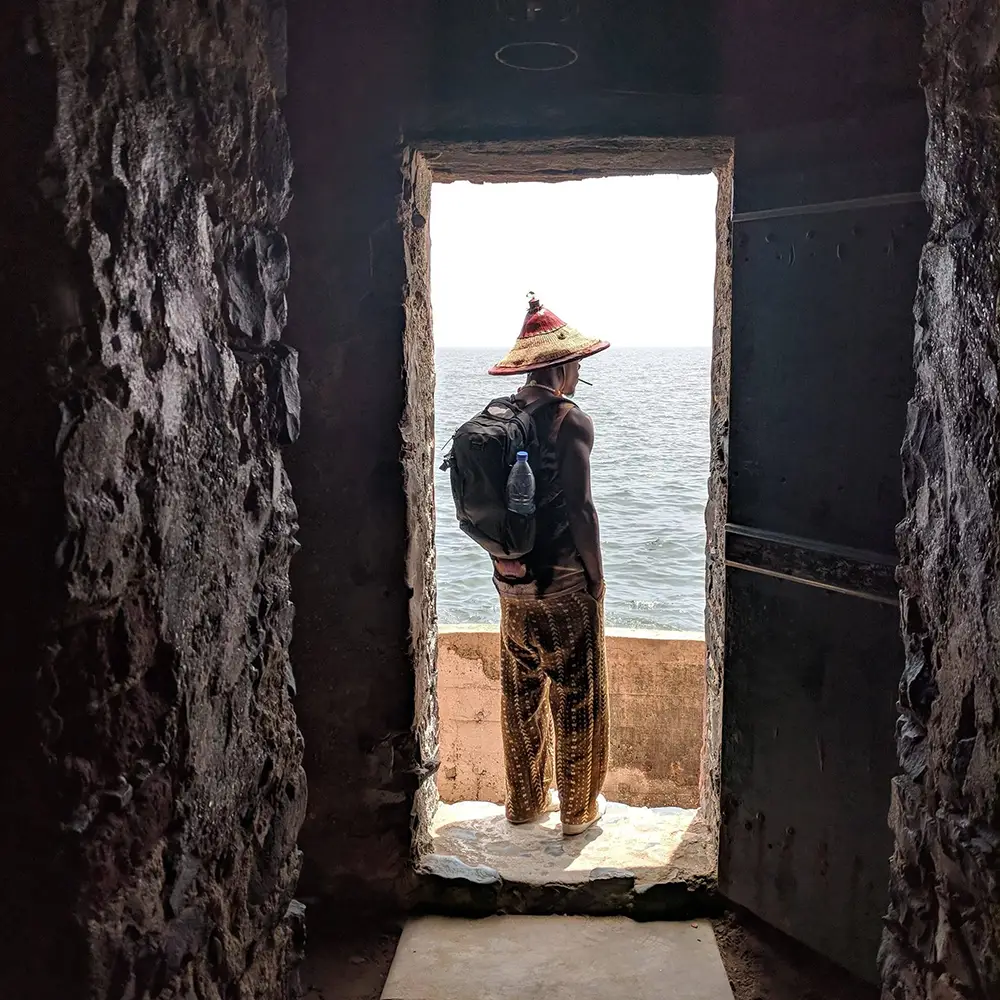Travel With Africana Studies Expands Student Views


For the past 20 years, students from the University of Tennessee, Knoxville, have been traveling to Africa and learning more about themselves, world history, different cultures, and an area poised for major economic growth.
Distinguished Lecturer Amadou Sall launched the study abroad program because he recognized the benefits firsthand experience would have on students taking his courses on history and culture in the Department of Africana Studies. Now as the department’s director of community and global engagement, he sees further opportunities for the program.
“Study abroad opens students to the world, and it teaches them to learn about and accept differences,” Sall said.
Understanding other cultures is valuable in a wide range of careers, including medicine, law, and business, notes Sall, a member of the Fulani people who grew up in West Africa. And in recent years economists have been highlighting opportunities on the African continent and suggesting it could be the next big growth market. “We have more resources than any continent,” Sall said. “We have the youngest people on Earth—70% of our population is 30 years old and less.”
“People tend to think that Africa is just jungles and people running around with elephants in their backyard,” Sall said. “When we get there, they see all these nice high-rise buildings. They see the roads being well done.” Students see the contrast of rich and poor, the modern and the women selling goods at the market with children on their backs.
“What surprises them the most is how people are nice to them,” Sall said, explaining that in the African countries they see all foreigners as the same. “They see you as somebody who has come to their country as a foreigner, and if you come to somebody’s place, they have to take care of you.”
A September 26 open house will introduce visitors to the study abroad trips and other opportunities in the Department of Africana Studies.
Life-changing Travel
Sall has led student trips to South Africa, Ghana and Senegal. In South Africa they have visited Stellenbosch to discuss the development of apartheid and examined how the country was navigating the aftermath. At sites in Ghana and Senegal, they experience the dark, narrow passages of the transatlantic slave trade.
Corey A. Hodge (’15) traveled to Ghana and Senegal through the department’s study abroad program and earned his bachelors’ degree as an interdisciplinary programs major with a concentration in Africana Studies, as well as a minor in English. Today he’s an education, community outreach, and engagement coordinator for UT’s Center for Advanced Materials and Manufacturing.
Hodge said, “I remember growing up we would learn about kings and queens from Great Britain. We would learn about Europe and their systems, which was great. But then when we would speak about the history of Blacks, Africans, African Americans of the diaspora (discussions of) our ancestry began with the transatlantic slave trade. That was something, even at a young age, that made me so uncomfortable.”
His courses at UT filled in the gaps, but he was eager to know more about Africa than what had been presented to him in school and through the media. “I wanted to see directly with my own eyes, get the exposure, the familiarity of what actually is there,” he said.
Hodge calls his study abroad experiences in Africa “life changing,” an opportunity to learn more of his own heritage and begin to answer the question, “What is Africa?”
More than a decade later, he recalls standing where enslaved Africans were once loaded onto ships. “That was one of the most heartbreaking moments, but at the same time it was a very empowering moment as well,” Hodge said, reflecting with chills about his ancestors traveling through one of the ports of the chattel slave trade and all that has happened since to allow him to be standing in that place as an observer.
Students Reflect, Grow
“It’s not just about visiting the historical sites,” Sall said of the department’s study abroad program. The trips include service projects, such as painting a school or planting a vegetable garden, so students interact with people in the community.
They also have time to process what they are experiencing together. “We reflect at the dinner table after we eat; we talk about the day,” Sall said, and the students keep journals.
When students on one trip complained about the water pressure in their showers, Sall waited to address the topic until after a drive to the mountains the next day, where they saw local women carrying water back to their villages. Then he explained the cost for the property owner of water, giving students who may be accustomed to leaving taps open at home a new perspective.
With the discussions and journaling, Hodge said, “you really are able to dive into what all was being felt throughout the day.”
“In a new environment, your mind is all over the place, just taking in knowledge,” he said, noticing everything from buildings to food. “The good, bad, and the ugly of everything being experienced was able to be expressed.”
While talking about the history of chattel slavery may make some people uncomfortable, Hodge said, being uncomfortable does not mean it’s unhealthy.
“We were able to have very open conversations that challenged us on how we’ve been thinking and how we’ve been feeling toward the world that we live in. It was a wonderful opportunity for all of us,” he said. “So many lessons are able to impact who we are as leaders of today and tomorrow.”
Sall has always sought funding to make the month long travel accessible for students, and in 2019 the Dr. Carolyn R. Hodges and Dr. Amadou B. Sall Travel Endowment was created, named for him and a professor emerita whose many leadership roles included chairing the African studies program.
In 2023 he also organized a 10-day trip to Ghana for a dozen community leaders from Knoxville in areas including education, healthcare, and law.
Sall hopes to expand the reach of the department’s study abroad program beyond Africa, looking at travel to Latin America as well.
The Department of Africana Studies takes an interdisciplinary approach to not just the continent but African Americans and the African diaspora around the world as well. “Because if it’s Africana studies, then it cannot be just Africa itself,” said Sall.
By Amy Beth Miller